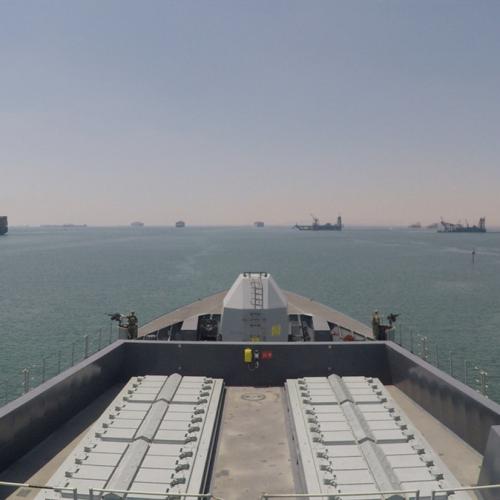



The United States killed Iranian Major General Qassem Soleimani, the top commander of the nation's Quds Force, in an airstrike in Baghdad, Iraq, on Friday — an action that could sharply escalate tensions in the Persian Gulf region.
Iran's Islamic Revolutionary Guards Corps confirmed on Friday that Soleimani was killed "in the raid of US helicopters" at Baghdad International Airport. The strike also killed Abu Mahdi al-Muhamdis, the deputy chief of Iraq's paramilitary Hashd Shaabi forces.
The Pentagon said in a statement that it conducted the strike at the direction of US President Donald Trump as a "defensive action" against Soleimani that aimed at "deterring future Iranian attack plans", and that the US will continue taking necessary actions to protect its people and interests of the world.
The Pentagon claimed that Soleimani "had orchestrated attacks on coalition bases in Iraq over the last several months". Iran has denied involvement in the recent deadly attacks on US forces in Iraq.
Iran's supreme leader, Ayatollah Ali Khamenei, vowed "severe revenge" to those who shed the blood of Soleimani and his companions, Iranian state TV reported on Friday. He said that Soleimani is "the international face of resistance" and that Iran will hold three days of public mourning over his death.
Iranian President Hassan Rouhani said on Friday that the country's resistance to the US will now be more determined.
"Soleimani's martyrdom will make Iran more decisive in resisting America's expansionism and will defend our Islamic values. With no doubt, Iran and other freedom-seeking countries in the region will take his revenge," Rouhani said in a statement.
Nancy Pelosi, speaker of the US House of Representatives, said in a statement that the airstrike "risks provoking further dangerous escalation of violence.
"America — and the world — cannot afford to have tensions escalate to the point of no return," she said, adding that Congress was not consulted on the strike.
China's Foreign Ministry spokesman Geng Shuang urged the parties involved, especially the US, to practice restraint and avoid further escalation of tensions.
"China has consistently opposed the use of force in dealing with international relations, and believes that all parties should take effective measures to observe the purposes and principles of the Charter of the United Nations, as well as basic norms that guide international relations," Geng said on Friday.
He added that Iraq's sovereignty, independence and territorial integrity should be respected, and peace and stability in the Middle East and the Persian Gulf region should be maintained.
Xu Liping, a researcher at the National Institute of International Strategy of the Chinese Academy of Social Sciences, said that tensions between Washington and Teheran are rooted in Trump's decision in May 2018 to withdraw from the 2015 Iran nuclear deal. Friday's airstrike will definitely bring more uncertainty to the Gulf region, Xu said.
"If the US and Iran have armed conflict in this region, it will have an unimaginably huge negative influence on world security and economic development," he said, adding that security in the Gulf region requires global cooperation.
Wang Qingyun and agencies contributed to this story.
If you have any problems with this article, please contact us at app@chinadaily.com.cn and we'll immediately get back to you.